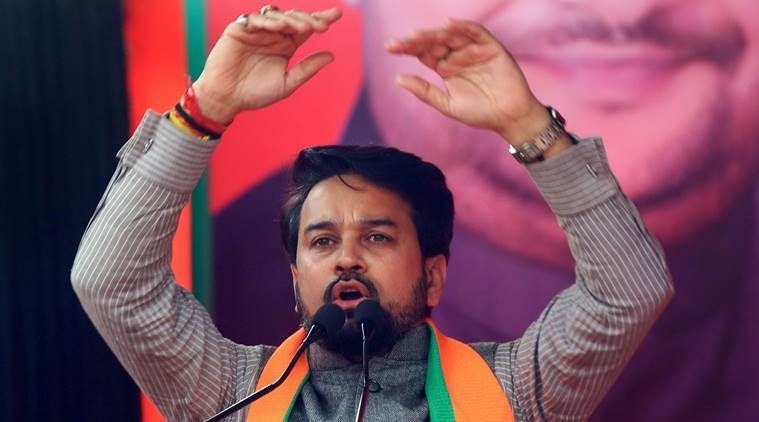 The point is, the man who yelled “Desh ke gaddaron ko…” and heard “Goli maaron saalon ko” from a responsive crowd may have lost the election, but can we guarantee that the person standing next to you won’t spew similar invectives? Unfortunately not. (PTI Photo)
The point is, the man who yelled “Desh ke gaddaron ko…” and heard “Goli maaron saalon ko” from a responsive crowd may have lost the election, but can we guarantee that the person standing next to you won’t spew similar invectives? Unfortunately not. (PTI Photo)
There was visible euphoria when the scales turned in Aam Aadmi Party’s favour in the Delhi elections. It was a moment to cheer, especially for those seeing it as a victory over aggressive right-wing politics. But, the cut may have scarred us deeper than we realise.
A friend commented how sweets were distributed in her office, “Even the Kashmiri Pandits, Brahmins, Muslims were celebrating.”
Sounds great as a symbol of unity. But, then we realised how we had identified each of them by their community. Would we have done that before?
I remember, growing up, being only vaguely aware of the surnames of a lot of friends. Yes, before anyone points out, there’s privilege in that. But it’s also true that we’re all a lot more politically correct now, benign or not. It’s out front and centre.
The fact that even re-elected Delhi chief minister Arvind Kejriwal, a self-confessed atheist in his early years as a politician, wears his Hindu identity with ease (or pride) may be worrying. It may just be that he’s learnt to play the game, foxing the ruling party with his “soft nationalism”, in which case, kudos to him.
But could we still hark back to an ideal world where religion and politics were meant to be two separate ideas? Perhaps not anymore.
And it looks like the trend is here to stay, even for liberals. The vitriol we saw these elections is seen everywhere, even in private WhatsApp groups, social media or conversations around the office water cooler.
In my society WhatsApp group (which I finally quit over sheer frustration and helplessness), when traffic snarls purportedly due to the Shaheen Bagh protest were being discussed, things got a bit messy. One resident told the other to ask “his friends” to clear the blockade, seemingly because they belonged to his community. However, the back and forth was shut down by a retired lady who wrote, “Aise sandesh or bhasha dekh kar apni padhai likhai or insaan hone par sharm aati hai (Seeing such messages and language makes me ashamed of my education and humanity).”
Soon enough, though, the vitriol started again.
In another group, when one resident wished others ‘Merry Christmas and a happy new year’, he was told “be Indian first”. Of course, it was heartening that the person was immediately pulled up by several others. However, the point is, the man who yelled “Desh ke gaddaron ko…” and heard “Goli maaron saalon ko” from a responsive crowd may have lost the election, but can we guarantee that the person standing next to you won’t spew similar invectives? Unfortunately not.
Being called anti-national, seditious, pseudo-liberal or plain “gaddar” is something we may all have to learn to live with. And one victory does not change that.